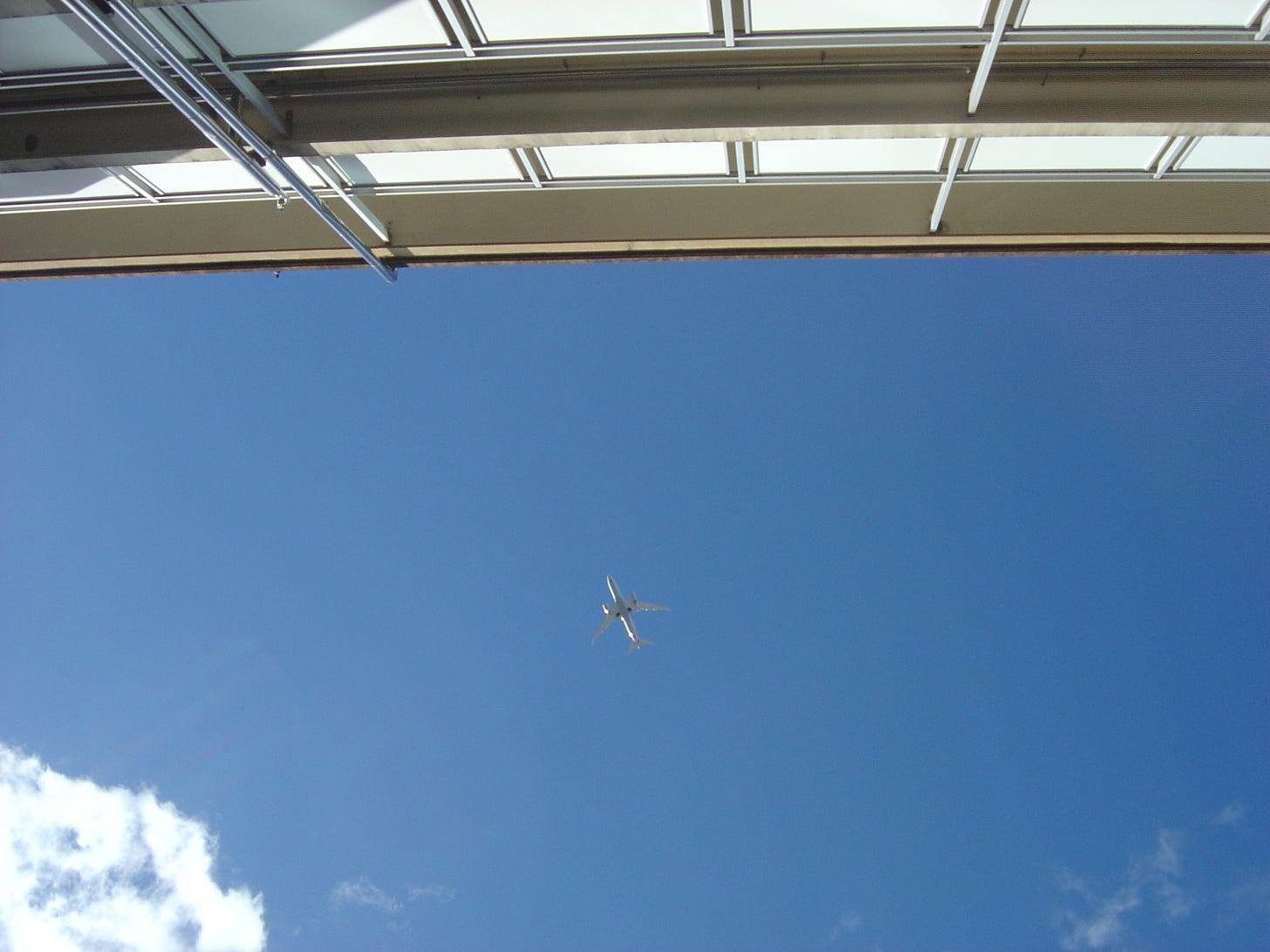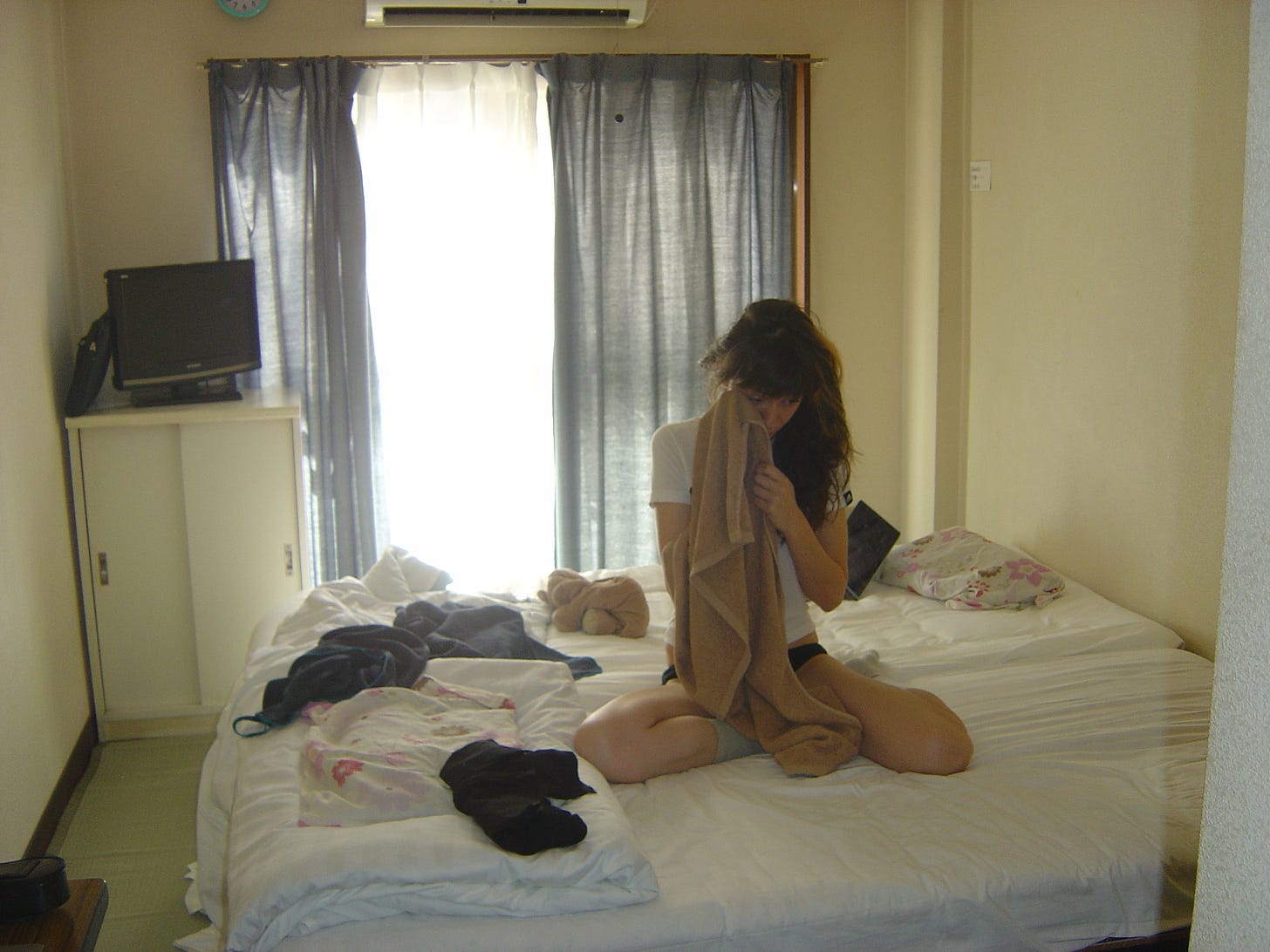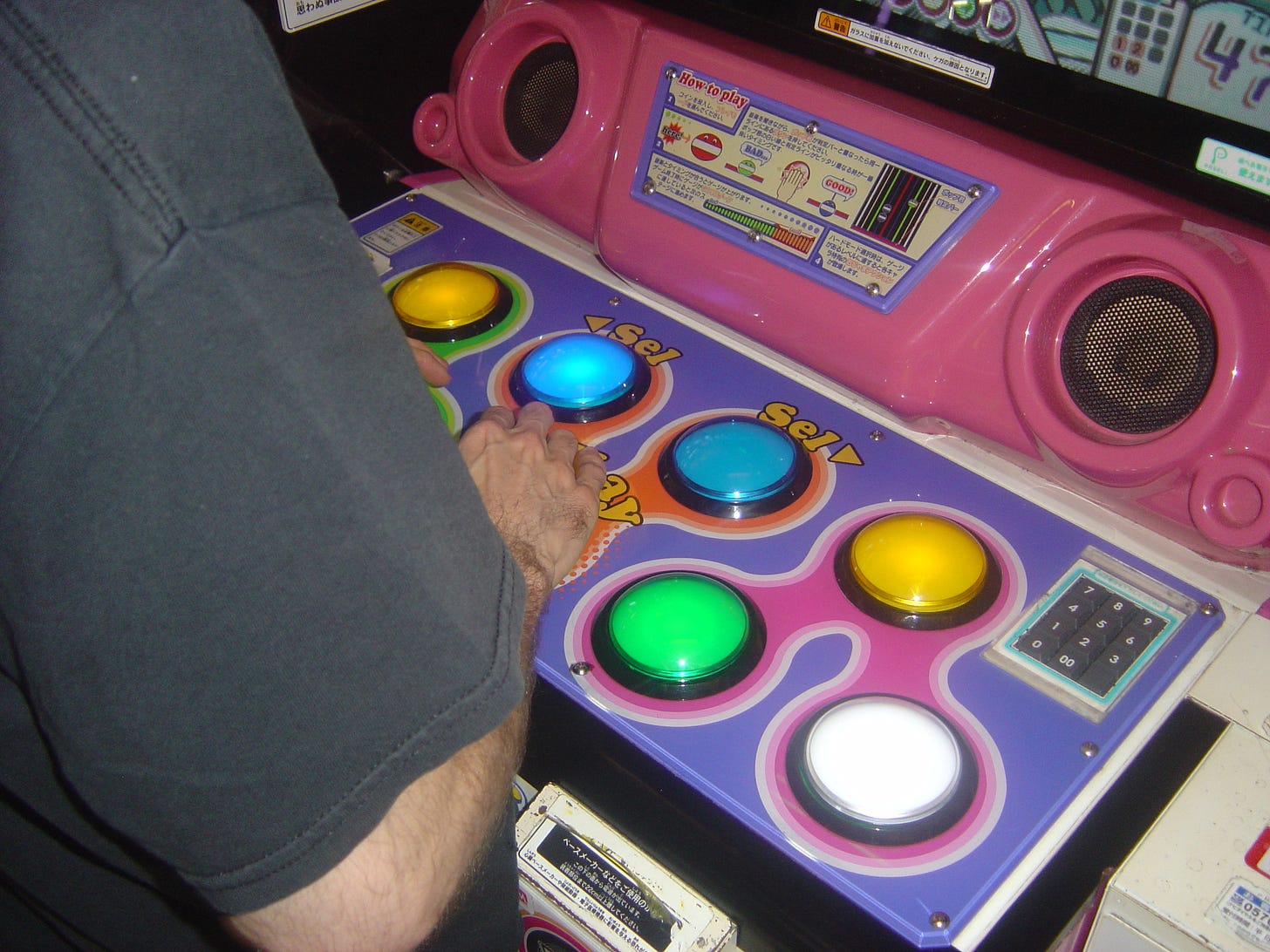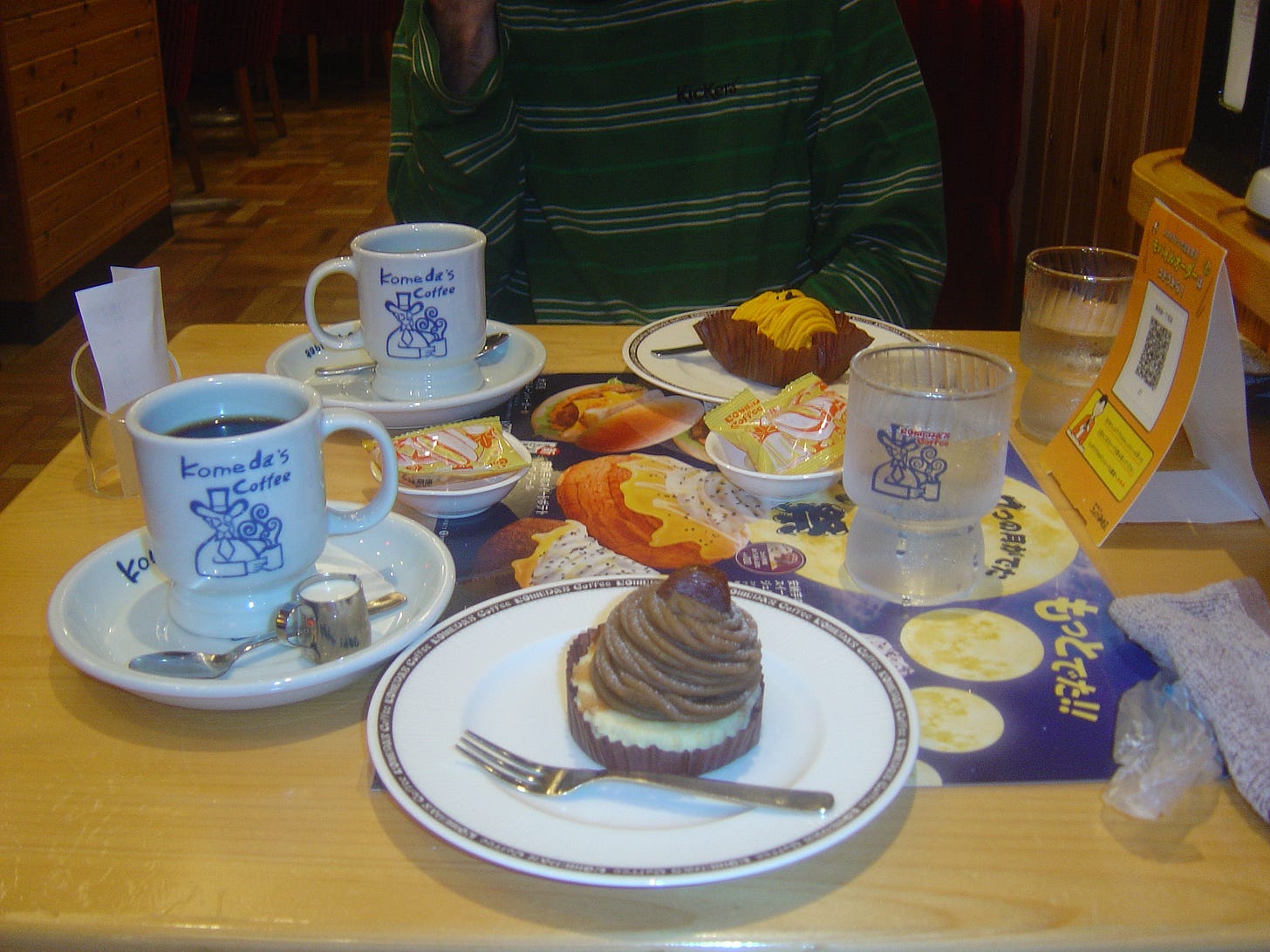As soon as we arrived in Tokyo, we couldn’t stop thinking about our first time in the country 4 years ago. Landing at the Kansai International Airport in Osaka at the time, our eyes were sparkling with curiosity and joy, gazing at every corners of the city, at every urban details, on shiny neon signs at night and pastel colors of day time. Now, entering the country as long-term residents1, the scenery seems different. What was once a field of wonders, now comes with a pinch of apprehension. Innocence and awe are still proeminently present, but the stress of making it here shows its head from time to time.
The objectives are fairly simple, while being huge :
Find a house ⌂
Find a job ¥
Maintain our existence in the long term ⏱︎
Some basic missions that seems obvious but while navigating through sharehouses websites, reddit subposts, alarming google reviews & free wi-fi login pages, a common feeling started to emerge :
We’re a bit stuck in-between.
Not being fully tourists but also not real residents yet, facing our struggling japanese while couldn’t wait to manage nice conversations, holding on a share-house admission in the bed of some Airbnb or even just enjoying hand drip coffee while keeping an eye on our savings, well, it seems like we are stuck in-between pure enjoyment & unwanted spleen. It’s only been a handfull of days, but we sometime feel a bit silly wondering why it does not feel like the first time.
This time we arrived in Tokyo at Haneda Airport, and thinking about its vintage look, it seems that we are not the only one; Japan also looks a bit stuck. The golden era of the country is long gone (Tokyo’s Olympic Games international failure2, the daunting down of the Yen in 2024, the relentless aging of its population). Even if some of the [now retro]futuristic aspect of its accelerated modernization remains throughout the society, the country get its own inner problems to face. “Japan lives in the year 2000 since 1980”, is a common liner note oftenly used to describe the country. That reflexion feels a bit reductive but is meaningful nevertheless. What was once seen as a futuristic land filled with promises, pulsating pop music, abundant crowd of over-stylish kids and peculiar gadgets, doesn’t seem that different nowadays. But through the eyes of the world, it’s more fondness than stupefaction that can be read now.3
Funnily, we began to see parallels with our current feelings appearing everywhere. Our eyes started paying attention to all the in-betweens across the urban world. For example, the rise of parking lots scrawling their way through any hollow spot. Questionnable when you think about the exceptional state of public transportation in Tokyo.
We also recently came across the term of Toyoko kids. Teenagers living in the street after being put at the door by their parents or tutors. Generally victims of verbal, physical and psychological abuse by their family, those kids oftenly get their own official identity erased by their parents, in an attempt of erasing family shame at the same time. Now gathering in Shinjuku, those girls and boys share a similar background; they are people violently forced by society to revolve in-betweens.
Of course for now on, it’s all manageable. Even more since the temperature in Tokyo dropped from 35°c to a much much livable 25°c. Also being balanced from guesthouses to hotel rooms before finding a place to crash permanently allowed us to enjoy many Tokyo districts we may have not been to otherwise (Uguisudani in Taito-ku, Higashi-Nagasaki in Toshima, Kita-Senju in Adashi). Showing different facets of the city, from quiet residential wards to lively & crowded tiny streets. I guess we just need to accept the constant backpain of dragging our travel bags all day around ! And I have to say that the daily sandwichs made by our host do help a lot.
⚋⚋ ✈
Thanks for reading us ! We’re still not very sure about the reccurence of these blog posts in time. For sure, the next one is coming in October too. So bear with us, and see you on the next one.
Our voyage continue.
A WHV (short for Working Holiday Visa) allows you to stay in the country for one year and to have part-time job to fund your stay.
Not that we care a bit about Olympic Games and its economy, but Japan had already invested (and scraped) so much for it at the time.
But with the neo-y2k revival going strong, it allows Serani Poji to break through charts almost 30 years after the release of their first album.







